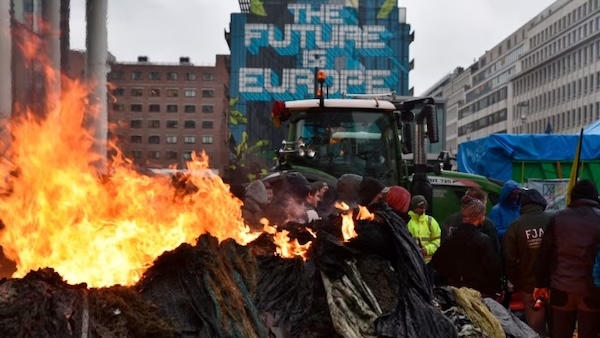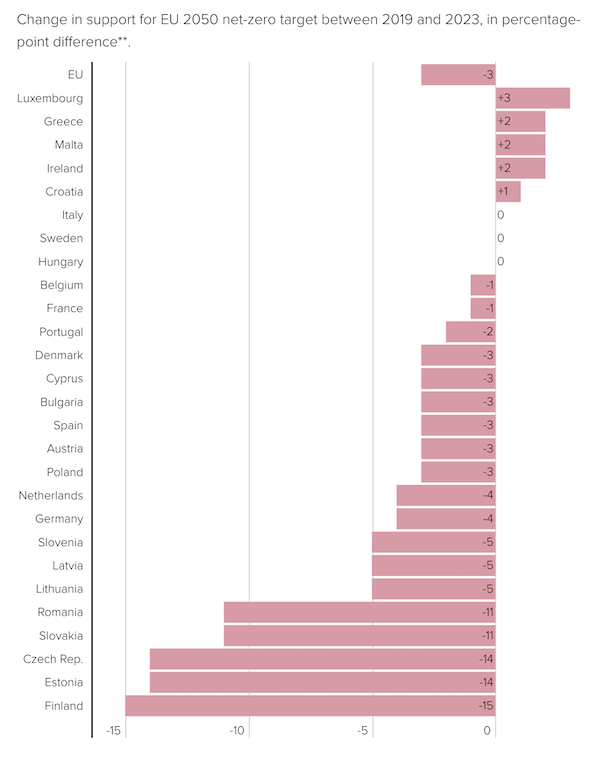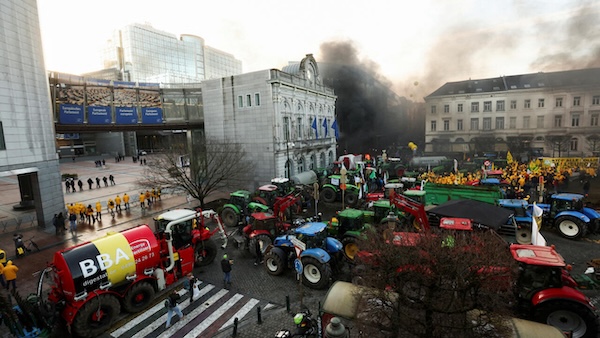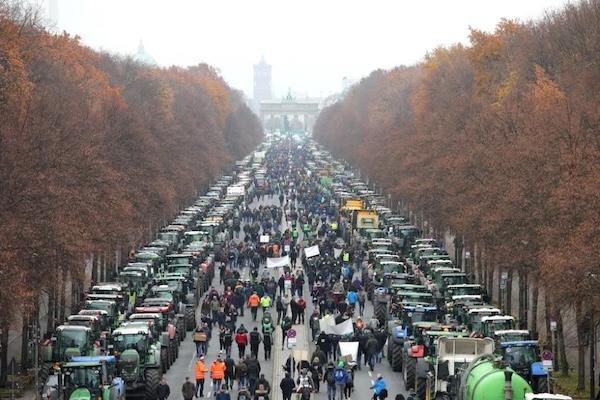Despite increasingly hostile farmer demonstrations, the European parliament just passed its highly controversial Nature Restoration Law (NRL) that agricultural stakeholders say will saddle them with burdensome costs and bureaucracy. The plan is a key pillar of the EU’s “Green Deal” that seeks to establish the world’s most ambitious climate and biodiversity targets and make the EU the “global point of reference” on all climate issues. While protests have won farmers a few concessions in the most recent version of the plan, EU ag groups are still slamming the law as a misguided approach that favors regulations and bans over a policy of incentives and cooperation with farmers.
Under the nature restoration plan, member states would have to meet restoration targets for specific habitats and species, with the aim of covering at least 20% of the region’s land and sea areas by 2030. By 2050, that should rise to cover all ecosystems in need of restoration. Additionally, the law calls on member states to restore at least 30% of drained peatland by 2030 and make progress on indicators of agriculture biodiversity that include increasing the number of grassland butterflies and farmland birds. The law still must be approved by the EU Council before it comes into effect. The decision is due at the end of March.
Some of the specific requirements for farmers under the new law include:
- Peatland Restoration: Farmers with drained peatlands on their land are required to restore these areas. This involves rewetting peatlands, significantly reducing greenhouse gas emissions and supporting biodiversity. While farmers and private landowners will not be forced to rewet their peatland under the current rules, there are worries that the targets can’t be met without including farmland. Meaning ag groups are worried that future government agreements would target farmers and land owners.
- Landscape Features: Farmers are expected to increase high-diversity landscape features on agricultural land, promoting biodiversity and supporting essential ecosystem services. Examples include hedgerows, flower strips, fallow land, ponds, and fruit trees. However, ag groups worried about food security and farmer livelihoods are opposed to the conversion of agricultural land for other uses.
- Organic Carbon in Cropland Soils: Measures to increase soil health and the stock of organic carbon in cropland mineral soils will be a key focus.
Once the law is finalized by the EU Council, each EU member state will have two years to develop its own comprehensive restoration plan outlining the specific measures within their country to meet the EU-wide targets. While the law provides binding targets, it grants member states a degree of flexibility in designing their restoration strategies according to their specific ecological circumstances and needs.
Significant funding for these projects is supposed to come from both EU and member state budgets. However, farm groups say chief among their issues is how this law will be financed and how land managers and landowners will be supported to actively make long-term changes happen with only short-term monetary incentives. Additionally, EU farmers are worried that added production costs will make them increasingly uncompetitive against cheaper global suppliers.
The NRL passed by a vote of 329 in favor and 275 opposed, along with 24 abstentions. In other words, it doesn’t enjoy overwhelming support among lawmakers, either. The real test for the strategy will likely in June when the EU holds parliamentary elections. Far right groups are hoping to win major gains amid the so-called “greenlash,” while parties in support of the NRL are looking to do the same. Obviously, climate policies will likely be gutted if far right politicians gain control, just as even stronger climate policies will likely result if NRL supporters come out on top. (Sources: The Guardian, Context, The Brussels Times, Politico)











